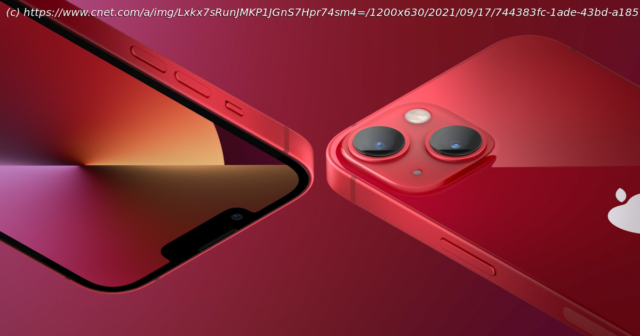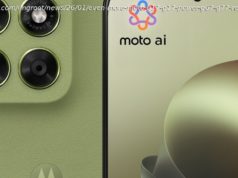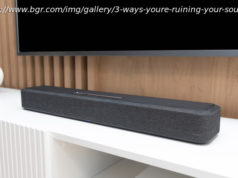Apple’s iPhone 13 and 13 Pro certainly have a lot to offer over their predecessors: longer battery life, better cameras and more storage space …
Apple’s iPhone 13 and 13 Pro certainly have a lot to offer over their predecessors: longer battery life, better cameras and more storage space at the base level. But there are still plenty of features we’d hoped to see on the iPhone 13 lineup that are missing from Apple’s latest iteration of smartphones. Many of these capabilities are available on Android competitors, while some can even be found on other Apple products. The iPhone 13, which became available for preorder Friday morning, starts at $829 for the standard model without a carrier discount. The Mini begins at $729, while the iPhone 13 Pro starts at $999 and the iPhone 13 Pro Max has an entry price of $1,099. From an in-screen fingerprint reader to a truly borderless screen, here are the features that are still missing from the iPhone 13. Wouldn’t it be great if you could use the same charger for your iPhone and the other gadgets in your home? Unfortunately, Apple’s latest iPhone is once again missing USB-C connectivity. As has been the case since 2012, the latest iPhones require Apple’s proprietary Lightning cable for wired charging. Not only does that mean you can’t use chargers from other gadgets to power up your iPhone, but it also means chargers from other Apple mobile devices might not be compatible with your iPhone. Apple’s iPad Air, iPad Pro and newly announced iPad Mini, for example, all charge via USB-C. That means even if you’re an Apple loyalist, you’ll need to keep track of multiple charging cables. Face ID works great most of the time, but it would be nice to have the option of using your fingerprint to unlock your device as well. That’s especially true over the last year-and-a-half since Face ID can’t accurately identify you while wearing a face mask. If you don’t have an Apple Watch, you’ve probably been typing in your passcode much more than usual over the past year. Many Android phones, such as those from Samsung, Motorola and OnePlus, have fingerprint readers built into their screens. A 2019 report from analyst Ming-Chi Kuo, who is known for his sometimes accurate Apple predictions, said Apple would release an iPhone with Face ID and an in-display fingerprint sensor in 2021. That didn’t turn out to be true, but perhaps we’ll see it in the iPhone 14. One of the most prominent rumors about the iPhone 13 in the weeks before its launch was that it would come with satellite connectivity for sending texts in emergency scenarios. That didn’t turn out to be true, at least not yet. Kuo and Bloomberg both reported that the iPhone 13 would be able to use satellite connectivity in areas without cellular coverage. But Bloomberg’s report provided a bit more detail, saying that this feature would primarily serve as an SOS for contacting emergency services. Messages would have a length restriction, and you might have to walk to a certain location to connect. However, the Bloomberg report did say that the feature could be scrapped, and it also warned that the iPhone 13 may not have the feature at launch even if it does have the hardware to support it. Wi-Fi 6e is still new and isn’t a must-have just yet. But since many people buy an iPhone with the intention of keeping it for several years, it would have been helpful to see Wi-Fi 6e support in at least the Pro and Pro Max models. Wi-Fi 6e is a special designation for Wi-Fi 6 devices that allows them to access the new 6GHz band of spectrum. As my colleague Ry Crist puts it, think of the 6GHz band as a “shiny, new seven-lane superhighway” that’s only available for supported devices.






